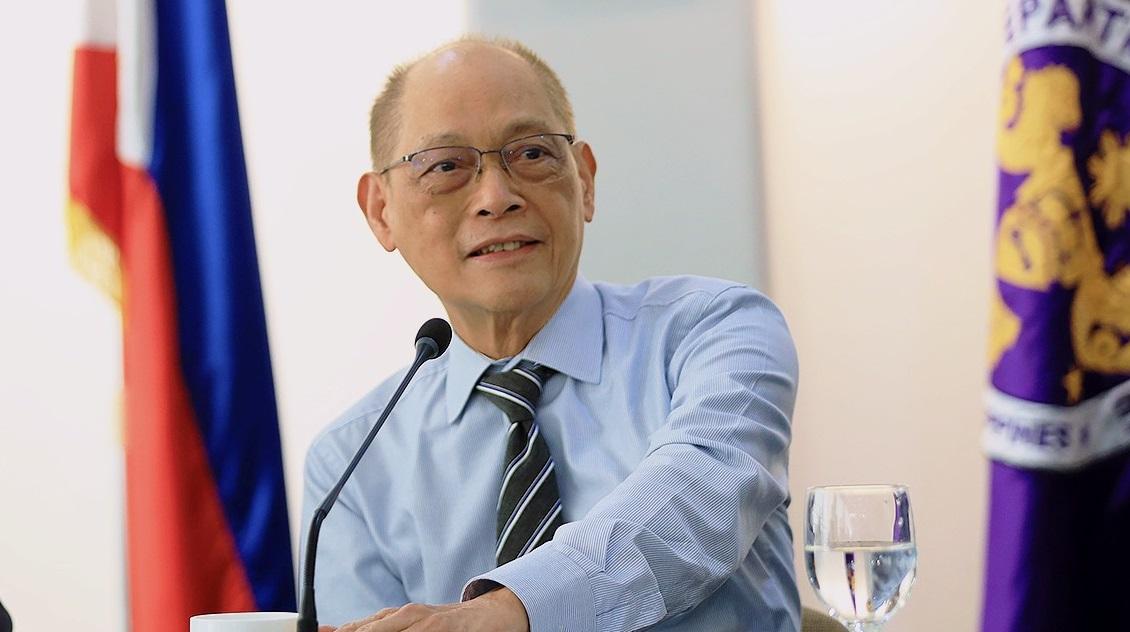Diokno insists on removing MUP pension system indexation

Finance Secretary Benjamin Diokno on Wednesday stood firm on removing the indexation from the military and uniformed personnel (MUP) pension system as part of proposed reforms to address fiscal implications stemming from its current setup.
“It will not qualify as a reform if indexation will continue and the active members will not contribute. We have to reduce the fiscal impact of the MUP’s pension program and the contribution of active members will greatly help in managing that,” Diokno said in a statement.
This came after Defense Secretary Gilbert Teodoro proposed the full indexation of the MUP pension corresponding to personnel's rank upon retirement.
Military and uniformed personnel currently do not make contributions to their pension fund, which is fully funded by the government under the national budget.
Under the current system, retired MUPs' pensions are automatically indexed to the prevailing salary of incumbent personnel of similar rank.
Therefore, when the salary of the armed services doubled in 2018, this also reflected in the pension of retired personnel, according to the DOF.
Diokno said that he agreed with retaining the indexation for current pensioners to ensure the non-diminution of their benefits.
“But for the active personnel and new entrants, their future pension will be adjusted according to economic conditions and financial viability of the proposed pension fund,” the Finance chief said.
For active and new entrants, Diokno said their pension benefits will be reviewed annually for a possible increase of up to 1.5% every year.
“The pensioners and the active personnel have different needs. It is therefore necessary to ensure that the pension and wages have different bases for adjustment. Removing automatic indexation of pension to the current wages gives us flexibility to respond to the unique needs of the pensioners and the active personnel,” the Finance chief said.
House ways and means panel chairperson Joey Salceda earlier said that full indexation will entail additional P1.2 trillion to the already P2.2 trillion worth of actuarial reserve deficiency for MUP pension under the House Ad Hoc Committee-approved version of the proposed MUP pension reform bill which provides for 50% indexation, aside from mandatory contribution for active MUPs for their pension.
Diokno, for his part, said that from 2018, pension commitments have consistently exceeded the budget for maintenance and other operating expenses (MOOE), and capital outlay (CO) of the military and uniformed services.
“This predicament weakened the ability of the government to effectively meet the needs for military modernization,” the Finance chief said.
The Cabinet official said allowing indexation to continue will be unsustainable, which, coupled with guaranteed increases, will further expand the deficit.
“According to the Department of Budget and Management, a guaranteed 3% annual salary increase for 10 years with full indexation of pension benefits will require P11.8 billion in 2024, P24.5 billion in 2025, P38.1 billion in 2026, increasing up to P165 billion in 2033,” Diokno said.
“Without new revenues, the national government will be forced to borrow to finance these increases in benefits,” he said.
Aside from the termination of indexation, Diokno said the economic team also proposes to standardize the benefits of MUPs to include maximum regular pension of 90% of base and longevity pay, separation pay, and similar benefits under optional retirement which the pensioners will receive immediately upon retirement. All new entrants in the uniformed services shall also be retired at actual rank.
Diokno is also standing firm on the following proposals on the MUP pension system reform by the economic team:
- Mandatory 5% contribution of active personnel on year one to three, 7% on year four to six, and 9% starting year seven onwards, while new entrants will immediately contribute 9%. The contributions are based on the personnel’s monthly base and longevity pay
- Government counterpart contributions to meet the 21% total pension premium
The Department of Finance (DOF) said that it would take at least 60 years for the reformed MUP pension system to become sustainable if only the new entrants are mandated to contribute. — BM, GMA Integrated News




